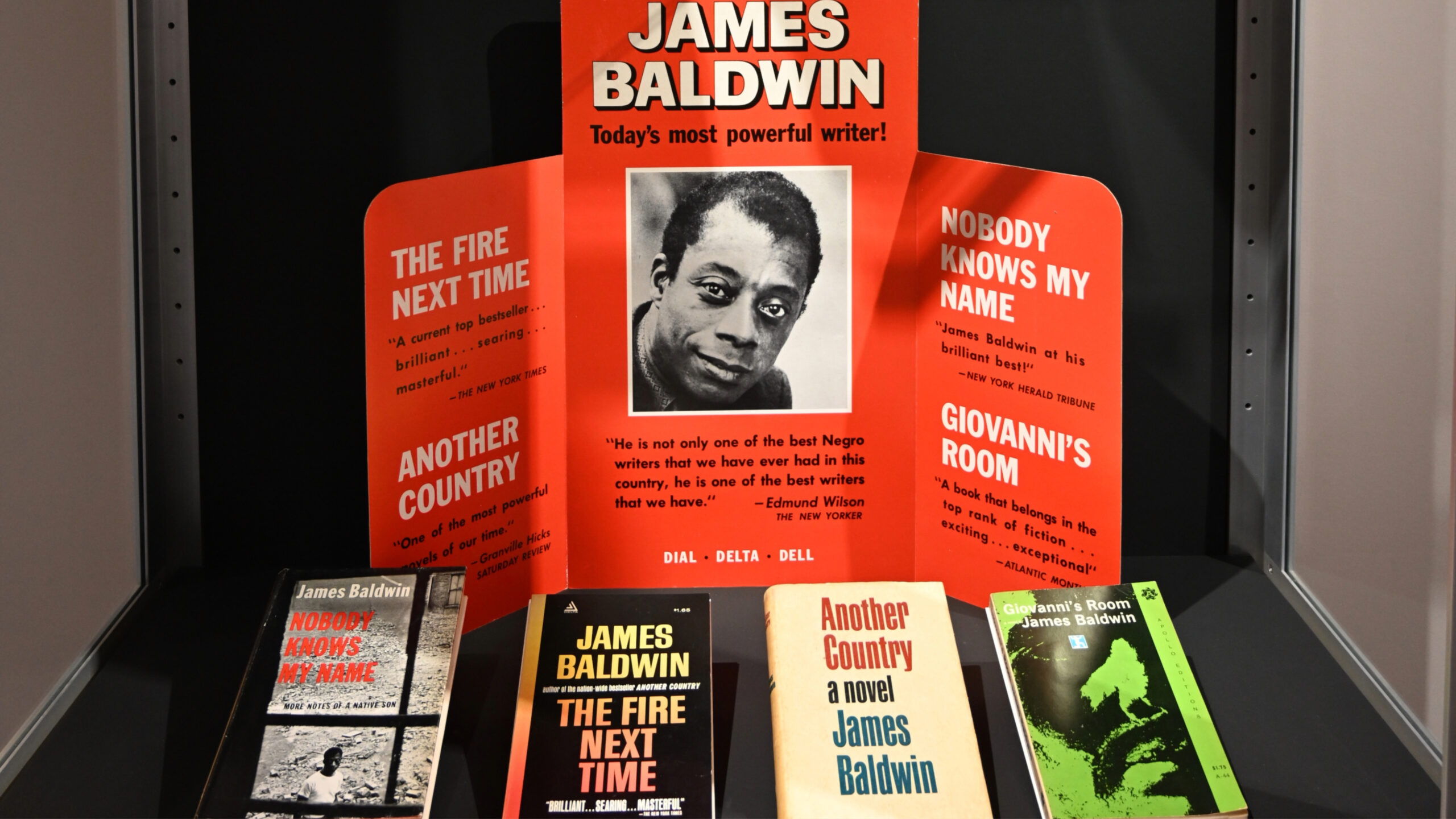James Baldwin Books: A Comprehensive Exploration

James Baldwin, a towering figure of 20th-century literature and a prominent voice in the Civil Rights movement, left behind a rich and multifaceted body of work. His novels, essays, and plays grapple with complex themes of race, sexuality, class, and faith, offering unflinching critiques of American society and enduring insights into the human condition. This exploration delves into the world of James Baldwin’s books, examining their genres, lasting impact, and the lessons they impart.
The Literary Landscape of James Baldwin
James Baldwin’s literary output spans various genres, solidifying his position as a master of both fiction and non-fiction. His novels, often set against the backdrop of Harlem and Paris, explore the intricacies of identity, love, and social injustice through compelling narratives and richly developed characters. His essays, marked by their intellectual rigor and emotional honesty, offer profound reflections on race relations, the writer’s role in society, and the complexities of American identity. His plays, though fewer in number, similarly engage with these themes, demonstrating his versatility as a writer.
Genres and Styles

Baldwin’s work defies simple categorization. His novels are often classified as literary fiction, but they incorporate elements of realism, social commentary, and psychological drama. “Go Tell It on the Mountain,” for instance, is a coming-of-age story deeply rooted in the religious and social context of Harlem, while “Giovanni’s Room” tackles the challenging subject of homosexuality with unprecedented frankness for its time. “Another Country” intertwines themes of race, sexuality, and artistic passion, creating a complex tapestry of human relationships. “If Beale Street Could Talk,” a poignant love story, explores the devastating impact of racial injustice on a young couple. Finally, “Just Above My Head,” a sprawling family saga, delves into the complexities of familial relationships and the legacy of the past.

His essays, collected in volumes like “Notes of a Native Son” and “The Fire Next Time,” are equally diverse in their scope. Some are deeply personal reflections, while others are incisive analyses of social and political issues. His writing style is characterized by its lyrical beauty, intellectual depth, and unflinching honesty. Baldwin’s prose is both accessible and profound, captivating readers with its emotional power and intellectual brilliance. He masterfully blends personal narrative with sociopolitical commentary, creating works that are both intensely personal and universally relevant. He uses vivid imagery, evocative language, and insightful observations to illuminate the human experience in all its complexities. This unique blend of styles and themes is what makes Baldwin’s work so enduring and powerful.
Classics and Bestsellers
Several of Baldwin’s works have achieved the status of literary classics, continuously studied and appreciated for their artistic merit and historical significance. “Go Tell It on the Mountain,” his debut novel, established his reputation as a gifted writer capable of capturing the nuances of religious experience and the complexities of identity formation within a specific social context. “The Fire Next Time,” a collection of essays published during the height of the Civil Rights movement, became a bestseller and remains a crucial text in understanding race relations in America. “If Beale Street Could Talk,” though published later in his career, has also garnered considerable acclaim and is now recognized as a masterwork of American literature. These works represent the pinnacle of Baldwin’s creative output, exemplifying his enduring ability to engage with timeless themes in compelling and insightful ways.

James Baldwin: Author and Activist
James Baldwin’s life was intrinsically linked to his writing. His experiences as a Black, gay man in America profoundly shaped his perspectives and fuelled his commitment to social justice. This section explores his biography, writing style, inspirations, and the major themes that resonate throughout his literary works.
Biographical Context
Born in Harlem in 1924, James Baldwin’s early life was marked by poverty, religious fervor, and the stark realities of racial segregation. His experiences profoundly shaped his worldview and informed his writing. He eloquently conveyed the struggles of his community and gave voice to the silenced, marginalized members of society. His early exposure to racial prejudice and religious conflict provided him with a deep understanding of human nature and social injustice. His move to France, where he lived for a significant portion of his life, provided him with a distance that allowed for both reflection on his homeland and a renewed focus on addressing the complexities of race and inequality in his own community. Throughout his life, his personal experiences informed his powerful social commentary. His activism and writing intertwined, creating a powerful legacy for future generations.
Writing Style and Inspirations
Baldwin’s writing style is marked by its lyrical beauty, intellectual depth, and emotional honesty. His prose is both accessible and profound, captivating readers with its emotional power and intellectual brilliance. He masterfully blends personal narrative with sociopolitical commentary, creating works that are both intensely personal and universally relevant. While he drew inspiration from a variety of sources, his experiences with racism and homophobia in the United States profoundly shaped his writings. The rich literary traditions of both Black American culture and Western literature informed his technique, resulting in a distinctive style that blends vernacular language with elevated prose. His use of symbolism, metaphor, and vivid imagery creates a powerful emotional impact on readers. His distinctive voice—confessional, passionate, and intellectually probing—is unmistakably his own.
Major Themes
Several major themes consistently appear in Baldwin’s work. The exploration of race and racism is central, examining the historical and ongoing impact of racial prejudice on American society and individuals. The examination of sexuality and its complexities is another major theme, especially the challenges faced by LGBTQ+ individuals in a homophobic society. His work also delves into the profound impact of religious faith and its influence on identity. He grapples with issues of class conflict and inequality, highlighting the stark disparities within American society. His commitment to exploring and addressing these profound social and personal issues defines his career.
The Educational Value and Cultural Impact of James Baldwin’s Works
This section delves into the summaries of his most significant works, highlighting their educational value and societal impact. This discussion incorporates analysis of their literary influence, adaptations, awards, and the communities that have embraced Baldwin’s writings.
Summaries and Educational Value
A comprehensive exploration of Baldwin’s works reveals their immense educational value. “Go Tell It on the Mountain” offers insights into the complexities of faith, family, and identity formation during a period of significant social and political change. “Notes of a Native Son” provides a powerful introduction to Baldwin’s thought on race and identity in America, exploring his early life and experiences. “The Fire Next Time” serves as a wake-up call to both white and Black America, urging a critical examination of the legacy of racism. “Giovanni’s Room” challenges readers to confront their own prejudices surrounding sexuality. “Another Country” illuminates the interconnections between race, sexuality, and the search for belonging. “If Beale Street Could Talk” explores the resilience of love in the face of adversity. “Just Above My Head” provides a nuanced look at the dynamics of family and faith within the Black community. The enduring relevance of these themes ensures that his work remains essential reading for understanding American history and social dynamics.
Literary Influence and Adaptations
Baldwin’s writing has had a profound impact on a generation of writers, particularly African American authors who found inspiration in his honesty and ability to give voice to marginalized experiences. His unflinching portrayal of race, class, and sexuality has influenced countless artists, inspiring them to address difficult subjects with similar candor and complexity. The literary world continues to be enriched by his legacy. His works have also been adapted into various media, including film and television, bringing his stories to wider audiences and ensuring his message reaches contemporary viewers. These adaptations highlight the ongoing relevance of his works.
Awards and Recognition
James Baldwin’s literary accomplishments have been widely recognized throughout his lifetime and posthumously. Though he didn’t receive the Nobel Prize in Literature, his work has had a profound influence on the world of literature and social activism. His books have been lauded for their lyrical prose, penetrating insights, and enduring impact on readers and writers alike. His essays, in particular, have garnered extensive critical acclaim and influenced the development of social thought and activism. The lasting recognition and widespread acclaim speak to the power and relevance of his literary output.
Communities and Legacy
James Baldwin’s works have resonated deeply with diverse communities around the world, connecting with readers who identify with his themes of struggle, resilience, and hope. His message of understanding, empathy, and social justice continues to inspire activism and social change. The enduring interest in his life and writings confirms his lasting legacy as a powerful writer and influential figure. His work continues to spark conversations on topics of critical importance in contemporary society, ensuring his continued relevance for generations to come. The diverse groups that connect with his work underscore the universality of his powerful message. The ongoing exploration of his work sustains his powerful and timeless contributions to the world of literature and social activism.